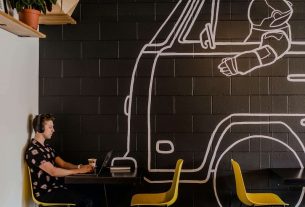Welcome to the Tech For Beginners Meetup! Tech for beginners is a free, self paced online introductory class designed to introduce new students to basic computer programming concepts. Each class is then broken down into discrete problem-solving tasks that can be followed either offline (like completing assignments) or can also be completed online (using lab resources). In this class you will learn the most critical concepts and skills required for writing comprehensive computer programs. If you are interested in pursuing a career in IT or in any field of math, engineering, or science, then this is an excellent class to take. You will be able to communicate better, think more clearly, and have greater control over complex problems.
OK, I’m going to start with some terminology. In this Tech For Beginners class we are going to use a lot of terms that you may not have heard before, such as “montage” for multi-track recordings, “diary” for digital audio diaries, and “waves” for sound waves. By the time you’ve finished reading this article, hopefully you’ll understand just a little bit more about what these different terms mean. I’ll also touch upon some popular resources that you can utilize if you want to further expand your knowledge on the subject.
There are many ways to study the art of recording online. Many people use online tutorials which feature lecture videos, audio tracks, and sometimes text guides along with the recording. These are great for learning the concepts and technology behind such technologies. Some online courses for beginners even go so far as to include practice sessions and discussion boards that allow you to ask questions or discuss recent topics.
Before you get started, you should make sure that you understand how all of this works. If you’re listening to a voiceover recording, then you are hearing the words and sounds of the speaker. The sound waves that are made are actually the sound waves that our ears are made from. When an audio file is recorded using the right equipment, it can be converted into digital sound waves and then be sent through the digital audio mastering process.
In the previous example, you probably heard a voiceover and it sounded great. However, in this case, the person speaking didn’t record his own voice and he was instead recording the sound waves that were produced by the equipment. You can learn about sound waves online by searching for the terms” amplitude modulation”, “sidebands”, and “digital sample oscilloscope”. Once you have learned the terms, then you can begin to learn about sound waves online.
OK, that’s it for now on the subject of tech for beginners. I hope that I haven’t scared you off. There really is a lot of information out there for audio engineers. It just takes a bit of looking and investigating to find the information that you are looking for. Good luck!




